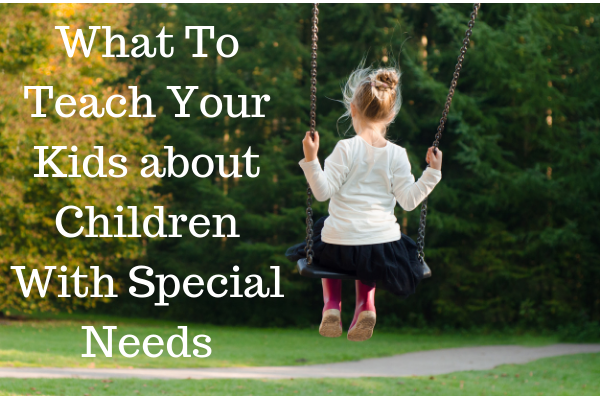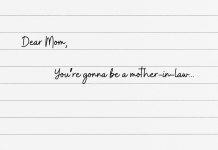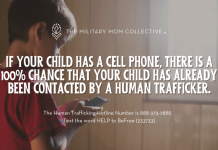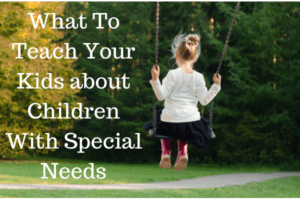
Dear Moms,
During this season of Thanksgiving, I would like to encourage you to talk to your kids about something that may not be a typical dinner-table conversation topic.
I want you to talk to them about the Other Kids.
My daughter is an Other Kid, in the sense that she is not in your child’s classroom. Due to her developmental delays, she is best served in a small classroom alongside other children with varying special needs and a higher student-teacher ratio. She is one of seven students (the only female!) and is lucky enough to have four teachers/aides to support her and her classmates.
However, during reading/language arts (story time) and for one session each day of either art, music, PE, and a few other “special” activities, she “pushes in” to a typical kindergarten classroom to learn alongside her peers.
I went to the same elementary school from kindergarten through fifth grade. (I also stayed local through graduating high school! Obviously my children will have a different experience.) There were about four or five kids who joined our class for music, art, PE, library, and I believe lunch and recess. I remember these kids well. Some of them graduated with me.
I was never a mean kid. I like to think of myself as very kind, nowadays. But as a child, I did not go out of my way to make these other students feel included. I think I ignored them, or interacted with them as necessary if we were in a group or on the same dodge ball team. I didn’t dislike them, but I didn’t try to get to know them. I hope they look back and think, “Gretchen was nice.” I hope I was never mean, exclusive, or rude to them because I knew they were in a classroom that indicated additional learning needs. I hope I never made them feel different.
My daughter Annika stands out a bit more than most of those kids I grew up with.
She is clearly behind her peers. She does not talk and cannot walk very well or very far. The school’s campus is so big that she sometimes rides in a stroller. She makes sing-song sounds and odd movements with her hands. Some days she may drool, she needs help feeding herself, and she does not follow simple instructions the way other students are taught to dutifully do in kindergarten.
I realize that to typical students, my sweet, beautiful princess is one of the “Other Kids.” She is in a small class with students who make funny sounds, don’t follow social norms, and need extra assistance sometimes.
I don’t want her kindergarten classmates to dismiss her the way I relatively dismissed the students that joined our class. They may see her and think, “she is a baby who rides in a stroller and drools, I don’t want to be her friend.”
I want them to realize there is value in interacting with her.
Last month I asked the kindergarten teacher if I could bring Annika to her classroom and introduce her to the students. I wanted them to actually see my daughter and know her on some level. I explained to them that her brain just works a little differently than theirs, and sometimes things are harder for her than they are for them. I told them she is five just like they are, and she has a little sister and she loves to read books. I wanted them to see ways in which Annika is just like them.
While I am not expecting play date invitations, I am hopeful that her kindergarten peers will say, “Hi, Annika!” when she enters the classroom. That is literally my one and only goal. That they see her.
Maybe they will want to sit next to her once in awhile. I told them that she may need their help sometimes. Honestly, I am perfectly OK with them viewing her as a “little sister” of sorts, but I just want them to see her as Different, not Less Than.
I want them to see her as Worthy.
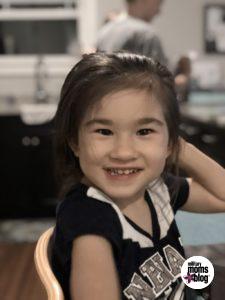
Annika cannot engage with her peers the way most of your children can, but she enjoys being near other children and can learn a great deal from them. However, if she is just ignored and only tended to by her aide while she is in the classroom, she misses out on a multitude of opportunities, both social and intellectual.
So during this season of Thanksgiving, I hope you will consider asking your children about the Other Kids at their school.
Maybe they join them for parts of the academic day, or maybe they just pass them in the hallways. But I hope you will teach them to see those kids. This extends beyond school. I think we are conditioned (or maybe just choose to) to ignore those with disabilities. We are taught not to stare at those with obvious differences, but as a result we treat them as invisible.
Teach your children to make eye contact and say hello. Please teach them to be kind to the Other Kids.
Thank you.
Signed,
Another Mom


